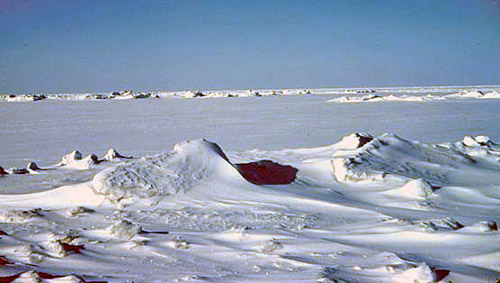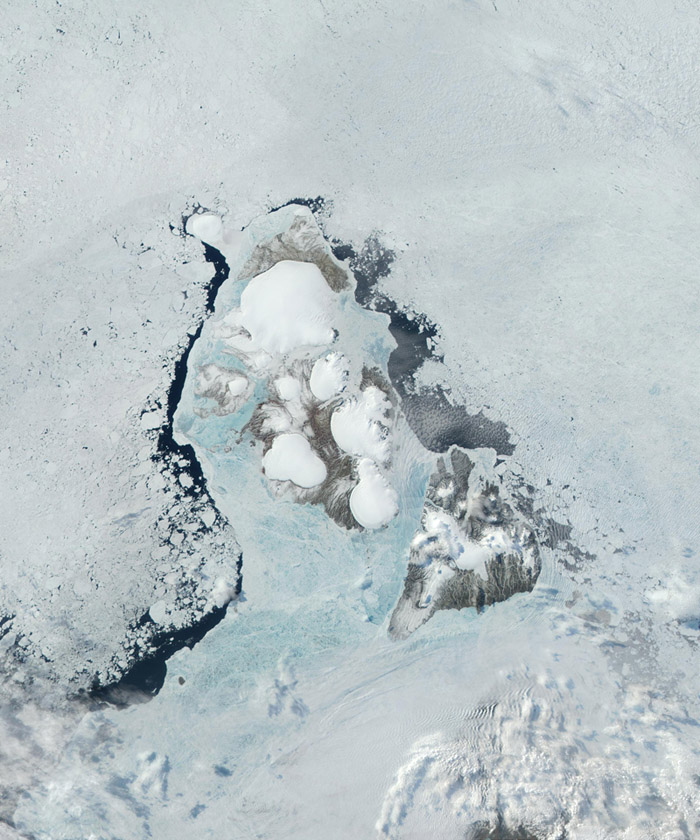
There are parts of Russia and Siberia above the Arctic Circle, including the islands of Novaya Zemlia (Новая Земля)--which for decades served as a Russian nuclear test site with hundreds of detonations having taken place--Severnaia Zemlia (Северная Земля), Wrangel Island (Остров Врангеля)--a UNESCO world heritage site as a natural preserve--and others. There are a variety of "Russian" seas that are really just a part of the Arctic Ocean, including the Kara Sea, Laptev Sea and the East Siberian Sea. There is also the Bering Strait separating Siberia from Alaska.
Essentially, the Arctic region is characterized by very long (and cold) winters and very short summers. Much of the Arctic consists of ice-covered ocean/sea. Most precipitation falls as snow, with most of the region receiving less than twenty inches a year.
In doing some reading about the Arctic, I have found out that the region is the focal point of much of the current research about global warming, and there are scores of sites now available on the web that detail scientific research regarding the relationship between global warming and the Arctic.

A satellite view of Severnaia Zemlia in July 2001.